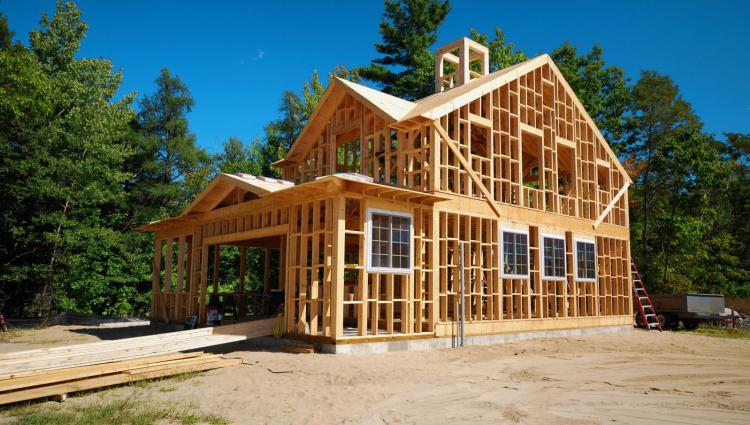Long regarded as unaffordable next-level technology, sustainable real estate development has finally reached mainstream status in Central and Eastern Europe.
Property development companies in the emerging Europe region are facing mounting pressure to align their strategies with the principles of environmental, social, and corporate governance (ESG).
For the most part, they are responding positively.
Environmentally-friendly design techniques and materials have become an integral part of the region’s construction process, and more and more businesses throughout CEE are making ambitious net-zero emissions commitments.
During this year’s edition of MIPIM, the world’s premier property event held in Cannes from March 15-18, we talked with several industry insiders about real estate sustainability, and what it means for both the present and the future.
Soaring demand
Christoph Salzer, vice-president at Warimpex, an Austrian company active in the Polish market, spoke about it in no uncertain terms.
“Sustainable development is a must,” Salzer told us. “You won’t really have good tenants if you don’t construct sustainable buildings, and you will have difficulties finding financing in the first place. The world has changed enormously in this regard in the past two years, especially since the EU Taxonomy was introduced.”
The EU Taxonomy is a framework for defining sustainable economic activities in the European Union, and it is seen as a stepping stone towards creating a climate-neutral economy in the EU by 2050.
“The buildings we construct from the ground up are 100 per cent sustainable,” Salzer added, “but old, existing buildings are much harder to improve in this respect.”
Grzegorz Kaczorowski, head of Warsaw’s Department of Economic Development, said there were actually fewer such challenges in Warsaw than in Western European cities.
“There aren’t that many old buildings we can upgrade in Warsaw. We mostly work with buildings from the 1990s onwards, and that makes our job much easier.”
“As for new buildings, around 94 per cent of all office space built in Warsaw these days is certified in one way or another, whether with LEED, BREEAM or other standards,” Kaczorowski added.
“Overall, Warsaw is completely up to speed with the latest real estate standards in terms of sustainability, mainly because there is great demand for such buildings among tenants and buyers, and developers keep supplying them.”

Youth driving the change
Lukas Geležauskas, a real estate developer at Lithuania’s SBA Urban, agrees that sustainability is now very much the order of the day.
“We were very early to the theme and it was something that we thought differentiated us from the market,” Geležauskas told Emerging Europe. “That’s not true anymore. Now everyone in the market does it.”
According to Geležauskas, to some extent the trend can be attributed to more environmentally conscious younger generations.
“The new generation of people working in tech will gravitate towards companies who take sustainability seriously – who don’t just talk about it but invest in it and have something to show for it, such as an environment-friendly office,” Geležauskas explained.
Tim O’Sullivan, head of investment properties at CBRE, said that millennials as a workforce group had much higher expectations in this regard than the preceding generations of workers.
“Sustainable workspace is simply what they expect, and companies need to keep pace with this,” O’Sullivan told us in Cannes.
He also added that in his opinion, there was still plenty of work to be done with respect to ESG.
“The sustainability question is difficult, because what you’re referring to is only the “E” of the ESG. The “S” and “G” are a bit of a sideshow, and the “E” is very much the focus right now,” O’Sullivan commented.
Every little helps
Somewhat unsurprisingly, Estonia is all in on sustainable development.
“Sustainability is now taken for granted in Estonia, but it’s also a never-ending process as there is always some room for further improvement,” said Kadi Metsmaa, CEO of Tallinn’s Esplan.
“I should also add that the ongoing change doesn’t just apply to separate buildings but rather to entire cities. Actually, the whole country is now switching from car-centric to human-centric.”
Ursel Velve, CEO of Mainor Ülemiste, another Tallinn-based real estate company, told us that her company listed exactly 34 areas where they still wanted to tweak their sustainability.
“For instance, if you took all the single-use food boxes our campus processes every year, you would be able to create a structure the size of a 13-storey office building,” Velve said. “And so right now we are piloting a project to introduce reusable boxes instead. It will work like our system with plastic bottles where you get back the two euros you paid when you first bought your drink.”
Meanwhile in Czechia, Prague’s JRD Group has been using eco-friendly building materials and technologies for nearly 20 years now, but according to Michal Vit, the company’s planning director, the domestic field of competitors is still far from crowded.
“Few Czech companies offer sustainable real estate solutions that would be similar to ours,” said Vit. “We find this surprising as there’s clearly a big demand for such services in our market.”
Unlike many news and information platforms, Emerging Europe is free to read, and always will be. There is no paywall here. We are independent, not affiliated with nor representing any political party or business organisation. We want the very best for emerging Europe, nothing more, nothing less. Your support will help us continue to spread the word about this amazing region.
You can contribute here. Thank you.








